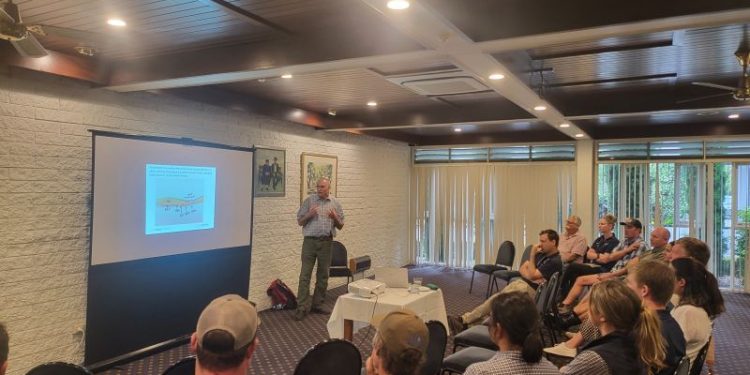#Agriculture #FarmingInnovation #SustainableAgriculture #CropDiversification #PestManagement #IndustryTrends #CornellUniversity #FrankHay
In a series of enlightening workshops held last week in New Zealand, Frank Hay, a distinguished Senior Extension Associate from Cornell University, shared his expertise on the cultivation of onions and potatoes. The workshops, focusing on national and regional agricultural issues, provided a platform for farmers, agronomists, agricultural engineers, and scientists to delve into the latest advancements in the industry.
Frank Hay emphasized the importance of adopting innovative cultivation methods. According to recent data, sustainable farming practices are gaining traction globally, with an increasing number of farmers incorporating eco-friendly approaches into their operations. The demand for organically grown produce continues to rise, highlighting the need for farmers to explore environmentally conscious methods of cultivation.
During the workshops, attention was drawn to technological innovations in pest management. Integrated pest management (IPM) strategies, backed by scientific research, are proving to be effective in minimizing the use of chemical pesticides. The data presented by Hay showcased success stories of farmers who have successfully implemented IPM, resulting in improved crop yields and reduced environmental impact.
The workshops also addressed industry trends, with a focus on the growing market for specialty onions and potatoes. Consumer preferences are evolving, and farmers are encouraged to diversify their crops to meet the demand for unique and niche varieties. The data indicated a notable increase in revenue for farmers who have embraced this diversification strategy.
Frank Hay’s workshops not only provided valuable insights into the latest trends and technologies in onion and potato cultivation but also highlighted the significance of sustainability and diversification in modern agriculture. As farmers and industry professionals strive for excellence, incorporating these insights can pave the way for a more resilient and profitable agricultural future.







